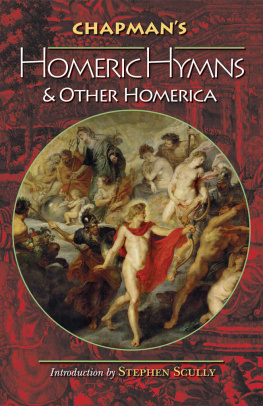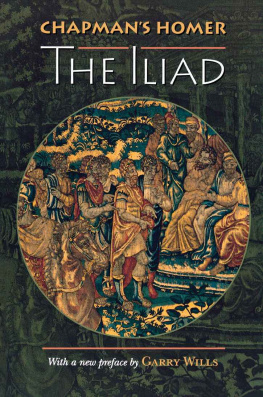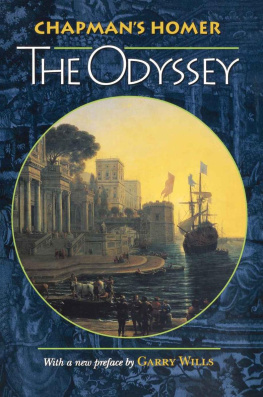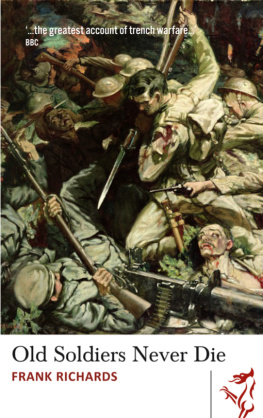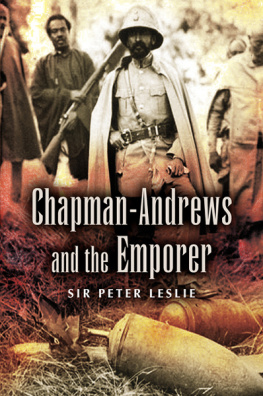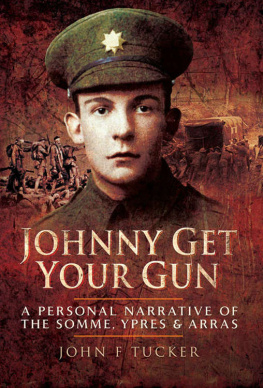A Passionate Prodigality
A Passionate Prodigality
Fragments of Autobiography
Guy Chapman
to drink of the ashes of dead relations, a passionate prodigality. He that hath the ashes of his friend, hath an everlasting treasure. Urn burial
First published in Great Britain in 1933 by Ivor Nicholson & Watson Ltd
This edition published in 2019 by
PEN & SWORD MILITARY
an imprint of
Pen and Sword Books Ltd
Yorkshire Philadelphia
Copyright The Estate of Guy Chapman 1933, 1965, 1985, 2019
ISBN 978 1 52675 011 2
eISBN 978 1 52675 012 9
Mobi ISBN 978 1 52675 013 6
The right of Guy Chapman to be identified as the author of this work has been asserted by him in accordance with the
Copyright, Designs and Patents Act 1988.
A CIP record for this book is available from the British Library
All rights reserved. No part of this book may be reproduced or transmitted in any form or by any means, electronic or mechanical including photocopying, recording or by any information storage and retrieval system, without permission from the Publisher in writing.
Pen & Sword Books Ltd incorporates the imprints of
Atlas, Archaeology, Aviation, Discovery, Family History, Fiction, History, Maritime, Military, Military Classics, Politics, Select, Transport, True Crime, Air World, Frontline Publishing, Leo Cooper, Remember When, Seaforth Publishing, The Praetorian Press, Wharncliffe Local History,
Wharncliffe Transport, Wharncliffe True Crime and White Owl.
For a complete list of Pen and Sword titles please contact
PEN AND SWORD BOOKS LIMITED
47 Church Street, Barnsley, South Yorkshire, S70 2AS, England
E-mail:
Website: www.pen-and-sword.co.uk
Or
PEN AND SWORD BOOKS LIMITED
1950 Lawrence Rd, Havertown, PA 19083, USA,
Website: www.pen-and-sword.com
TO THEMEMORY OF
CERTAIN
SOLDIERS
WHO HAVE NOW BECOME A SMALL
QUANTITY OF CHRISTIAN DUST THIS
FAINT REANIMATION
AND FOR
R. A. SMITH
CONTENTS
All the characters in this narrative are or were actual persons: in a few cases, for obvious reasons, names have been changed.
PART ONE
THE AMATEURS
In such a condition there is no account of time; no Arts; no Letters; and the life of man, solitary, poor, nasty, brutish and short.
LEVIATHAN
I
mere militia which are to be looked upon only as temporary excrescences bred out of the distemper of the State.
BLACKSTONES COMMENTARIES
F OR a long time I used to think of myself as part of a battalion, and not as an individual. During all that time the war, the forms and colours of that experience, posssessed a part of my senses. My life was involved with the lives of other men, a few living, some dead.
It is only now that I can separate myself from them. For that and other reasons this is more strictly the account of a company and begins in July, 1915, when a battalion of the New Army set out for France.
I was loath to go. I had no romantic illusions. I was not eager, or even resigned to self-sacrifice, and my heart gave back no answering throb to the thought of England. In fact, I was very much afraid ; and again, afraid of being afraid, anxious lest I should show it. Nevertheless, I concluded that it was easiest to meet a fate already beginning to overawe, as an integral figure in the battalion I had been born into.
As yet it had little but familiarity to commend it. When (after three months in the Inns of Court and a strenuous course at the Staff College) I joined it on the eve of 1915, I was shocked by my first contact with the New Army. It was not so much the circumstances; the dull little south coast watering-place in winter; the derelict palazzo, the head quarters, facing on one side the tumbling grey sea and on the other an unkempt field; it was not the men in shabby blue clothes and forage caps with their equipment girt about them with bits of string: it was the obvious incapacity and amateurishness of the whole outfit which depressed. The I 3th had been broken off from a swarm of men at the depot some three months earlier, and from then left almost com pletely to its own devices. It never had more than three regular officers, and those very senior and very retired, two from the Indian Army and not one from the regiment. In consequence it learned nothing of the traditions of its name few could have told you anything of Alma or Albuera and knew nothing of its four regular battalions. Below these seniors lay a heterogeneous mass of majors, captains and subalterns from every walk of life ; colonial policemen, solicitors, ex-irregulars, planters, ex-rankers, and in three cases pure chevaliers dindustrie. Many displayed only too patently their intention of getting through the war as quietly, comfortably, and as profitably as they could manage. They effectively discouraged the juniors from demonstra tions of excessive zeal, and by sheer negation tried to stifle our hunger for information. They failed, but nevertheless, the miasma of petty jealousy, bickering and foolish intrigue, which surrounded them, was the cause of much melancholy and profanity in us juniors. In the ranks there were a few time-expired N.C.O.s, among whom one was found giving the fire-commands of forty years before, Ready present fire. The ten months training, which the battalion went through before it reached France, was therefore a com pound of enthusiasm and empiricism on the part of the junior subalterns and the other ranks. Even now I am amazed at the zeal which induced some of us after dinner to push matches representing platoons about the table, uttering words of command in hoarse whispers, or on Sunday mornings climb the frosty, wind-cropped downs to practise map-reading and marching by the compass. We had no one to explain things to us. We had to get our text-books by heart before we could impart a crumb of information to our platoons. We seized on and devoured every fragment of practical experience which came our way, gobbled whole the advice contained in those little buff pamphlets entitled Notes from the Front, advice, alas! out of date before it was published. We listened hopefully to the lectures of general officers who seemed happier talking of Jubbulpore than of Ypres. We pondered the jargon of experts, each convinced that his peculiar weapon, machine gun, rifle, bayonet, or bomb, was the one designed to bring the war to a satisfactory conclusion. We were inclined to resist their pedantry, suspecting that in truth they knew little more than ourselves; and wewe knew nothing. We were in fact amateurs, and though we should stoutly have denied it, in our hearts amateurs we knew ourselves to be, pathetically anxious to achieve the status of the professional. The testing of the results of all these pains and ardours now lay else where.
* * *
The bugle blew the Fall in, and the companies clustered on the edge of the camp poured themselves into the mould of a battalion. I told off my sections and stood at ease, noticing with an uneasy eye that the sergeant of the platoon in front was hiccoughing gently and swaying on his feet. The c lonel gave the word and the battalion moved off. The band brayed The British Grenadiers. The sun shone its bravest. A group ofladies in summer frocks waved handker chiefs. We had started for France.




